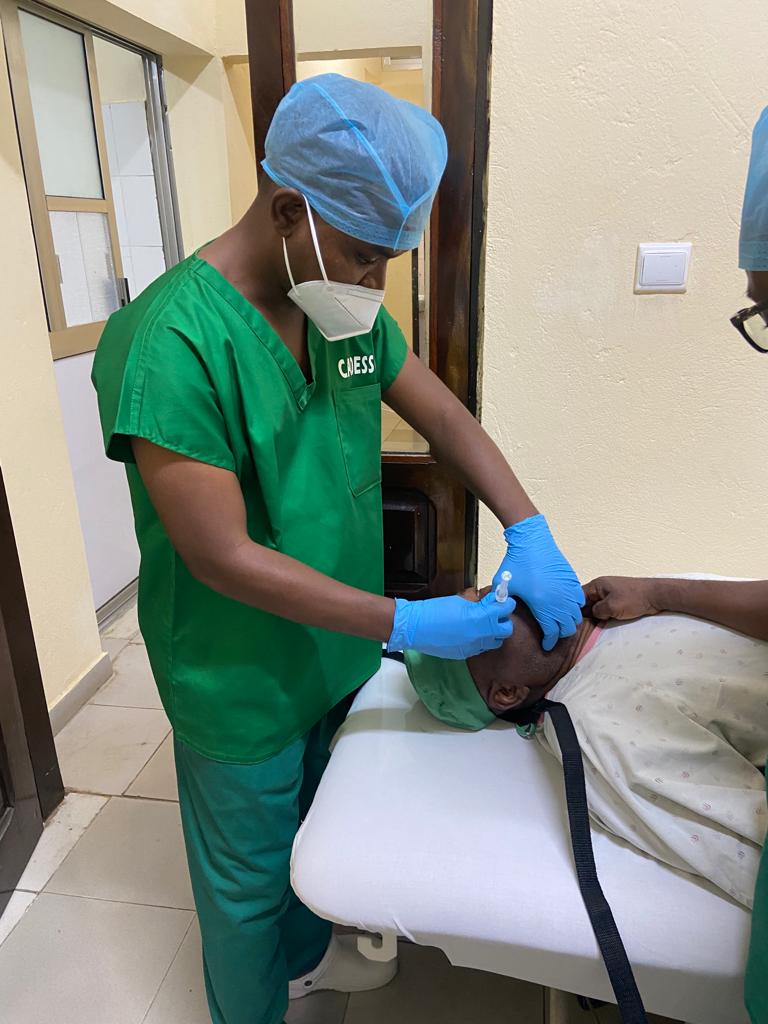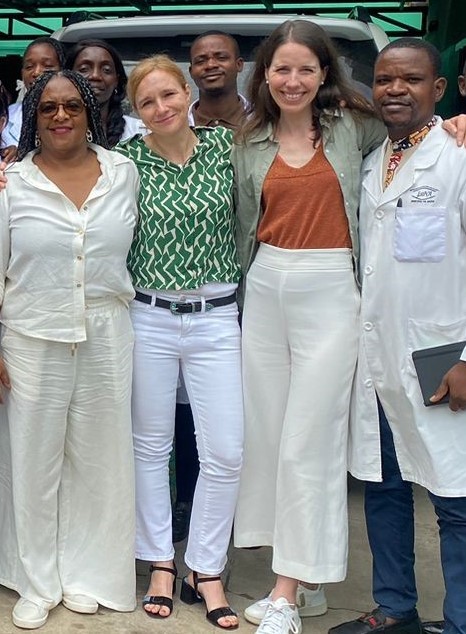Exclusive interview with Dr Fernando, ophthalmologist at IONA, Angola
Dr Fernando is an ophthalmologist at IONA, Luanda in Angola. He visited the DESSO Project, in Guinea, founded and run by Dr Ketema. From there, Dr Fernando moved to carry out cataract training in The Gambia in 2022, funded by CBM Luxembourg. He is currently (summer 2025) on a WHO funded training in Brazil for Anterior Segment & Cataract subspeciality. Dr Fernando kindly takes some time out of his busy schedule to talk to CBM Luxembourg.
Q1. Dr Fernando, thank you for agreeing to be interviewed. Can you tell us a little about your background and what brought you to work at IONA?
I took an optometry course in 2014 and graduated in general medicine in 2016. I worked for four years as an optometrist and abandoned optometry after I was admitted to IONA as an ophthalmology resident. The desire of working within ophthalmology brought me to IONA. I found IONA the right place for me, knowing that it is the best eye care provider throughout Angola.

Q2. You conducted your cataract training in The Gambia. How has the training enabled you to develop your skills and capabilities as a medical professional?
The training in The Gambia has helped me a lot and it proved crucial for my surgical skills development. I learned the technique of MSICS (“Manual Small Incision Cataract Surgery”) and its “philosophy”. I feel very comfortable performing MSICS and can now also perform phaco surgery (cataract surgery using a phaco-emulsifier).
Q3. What is a typical day like at IONA for an ophthalmologist? What changes have you witnessed since 2021 when CBM Luxembourg started supporting IONA?
Our typical day is very busy with work. IONA has experienced a lot of positive changes since 2021 when CBM Luxembourg began to work with us. The number of cataract surgeons, mainly native Angolans, and the volume of cases performed per day has increased. The number of ophthalmic examinations done per day has also increased and thanks to CBM, access to consumables is no longer a problem.
Q4. What is the greatest challenge in your role as an ophthalmologist in Angola? What support do you believe is most needed?
Even though Angola has a national direction for primary care, our greatest challenge remains to increase the priority and focus of the ophthalmic sector in Angolan national health policies. Additionally, Angola needs faster training; training eye doctors takes a long time, so providing technical training for nurses is required to work in the communities. Nevertheless, visual screening and cataract surgeries campaigns have been helping a lot for our work to become recognised and the budget has been increasing more and more.
Q5. Thank you for your time, Dr Fernando. What would be your message to conclude?
To conclude, I want to say that years ago the ophthalmic field wasn’t a priority for the local government, but things are changing. Currently, they intend to develop the sector. The government can’ t deal with all of the issues alone, so we see other opportunities for both local government and CBM to establish new ties.
Thank you very much for selecting me. I want also to thanks Dr Luísa Paiva, Director of IONA, for all her efforts for ophthalmic field development in Angola. Greetings and thanks to CBM.

We thank you Dr Fernando. We wish you the best for your training and for your future.